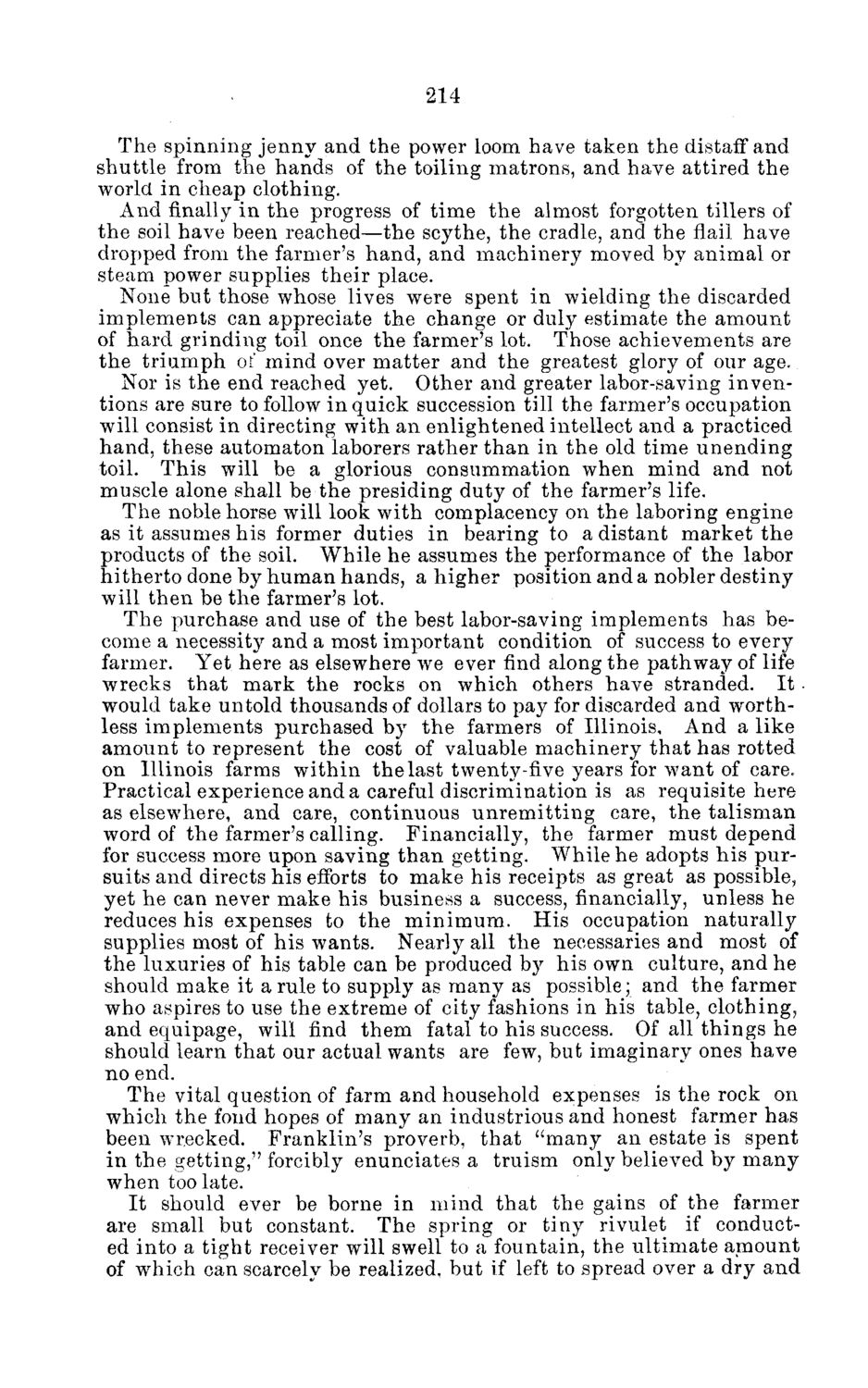| |
| |
Caption: Board of Trustees Minutes - 1876
This is a reduced-resolution page image for fast online browsing.

EXTRACTED TEXT FROM PAGE:
214 The spinning jenny and the power loom have taken the distaff and shuttle from the hands of the toiling matrons, and have attired the world in cheap clothing. And finally in the progress of time the almost forgotten tillers of the soil have been reached—the scythe, the cradle, and the flail have dropped from the farmer's hand, and machinery moved by animal or steam power supplies their place. None but those whose lives were spent in wielding the discarded implements can appreciate the change or duly estimate the amount of hard grinding toil once the farmer's lot. Those achievements are the triumph of mind over matter and the greatest glory of our age. Nor is the end reached yet. Other and greater labor-saving inventions are sure to follow in quick succession till the farmer's occupation will consist in directing with an enlightened intellect and a practiced hand, these automaton laborers rather than in the old time unending toil. This will be a glorious consummation when mind and not muscle alone shall be the presiding duty of the farmer's life. The noble horse will look with complacency on the laboring engine as it assumes his former duties in bearing to a distant market the products of the soil. While he assumes the performance of the labor hitherto done by human hands, a higher position and a nobler destiny will then be the farmer's lot. The purchase and use of the best labor-saving implements has become a necessit}?- and a most important condition of success to every farmer. Yet here as elsewhere we ever find along the pathway of life wrecks that mark the rocks on which others have stranded. It would take untold thousands of dollars to pay for discarded and worthless implements purchased by the farmers of Illinois, And a like amount to represent the cost of valuable machinery that has rotted on Illinois farms within the last twenty-five years for want of care. Practical experience and a careful discrimination is as requisite here as elsewhere, and care, continuous unremitting care, the talisman word of the farmer's calling. Financially, the farmer must depend for success more upon saving than getting. While he adopts his pursuits and directs his efforts to make his receipts as great as possible, yet he can never make his business a success, financially, unless he reduces his expenses to the minimum. His occupation naturally supplies most of his wants. Nearly all the necessaries and most of the luxuries of his table can be produced by his own culture, and he should make it a rule to supply as many as possible; and the farmer who aspires to use the extreme of city fashions in his table, clothing, and equipage, will find them fatal to his success. Of all things he should learn that our actual wants are few, but imaginary ones have no end. The vital question of farm and household expenses is the rock on which the fond hopes of many an industrious and honest farmer has been wrecked. Franklin's proverb, that "many an estate is spent in the getting," forcibly enunciates a truism only believed by many when too late. It should ever be borne in mind that the gains of the farmer are small but constant. The spring or tiny rivulet if conducted into a tight receiver will swell to a fountain, the ultimate amount of which can scarcely be realized, but if left to spread over a dry and
| |